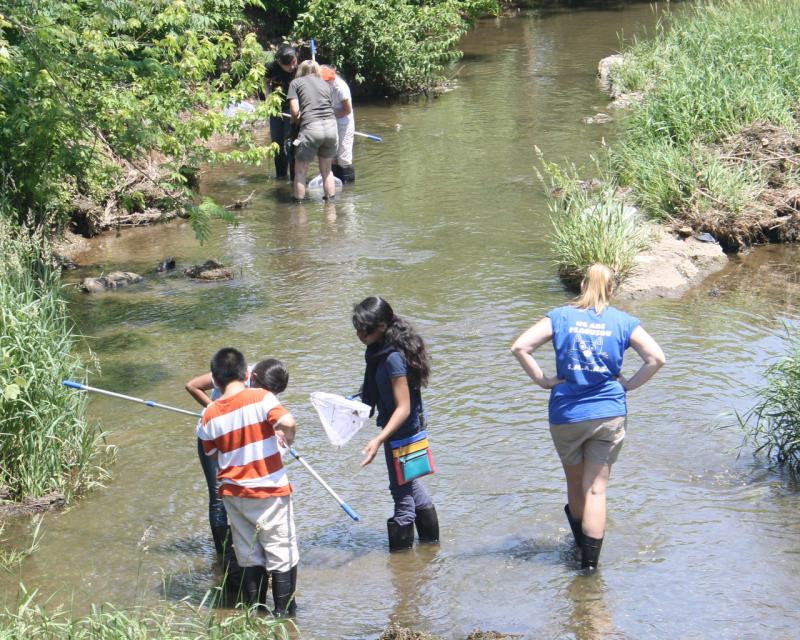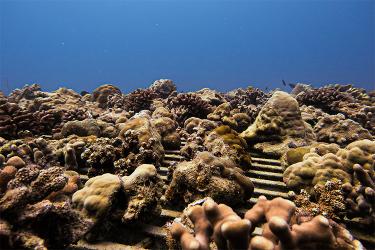The NOAA Chesapeake Bay Office has announced the institutions that will receive FY18 funding through the Chesapeake Bay-Watershed Education and Training (B-WET) grant program. A total of roughly $2,606,000, will fund 24 projects in four states around the Chesapeake Bay watershed--including 13 new projects in Pennsylvania (four projects), Maryland (three), and Virginia (six) totaling $1,486,000.
The grants were announced at an event on October 22, 2018, in Lancaster, Pennsylvania.

This year’s NOAA Chesapeake B-WET grants introduce support for school system-wide environmental literacy further up into the watershed, into areas not previously supported by B-WET. For example, this funding enables Chesapeake B-WET’s largest investment in Pennsylvania to date, supporting four new projects.
The newly selected projects, funded with fiscal year 2018 funds (further details on project goals and expected number of students and teachers they will reach are available from the NOAA Chesapeake Bay Office), are:
In Maryland...
- Pickering Creek Audubon Center will partner with Wicomico (Maryland) County Public Schools to help students and teachers explore how human activity affects aquatic and avian wildlife populations in Chesapeake Bay ecosystems through outdoor experiences, student action projects, teacher trainings, and more. ($112,652)
- National Aquarium Inc. will work with Baltimore (Maryland) City Public Schools in the “What Lives in the Harbor” project to connect Baltimore City students with the aquatic world of Baltimore’s Inner Harbor and to learn how their decisions and actions can achieve a healthy harbor. ($144,632)
- University of Maryland Center for Environmental Science will work with Calvert County and St. Mary’s County (both in Maryland) Public Schools to increase knowledge and understanding of plastic waste and its impacts on marine ecosystems. ($139,579)
In Pennsylvania...
- St. Francis University will reach teachers and students in Bedford Area, Chestnut Ridge, Harmony Area, and Hollidaysburg (all in Pennsylvania) Public Schools with learning experiences using stormwater best management practices as an organizing principle to engage middle-school students. ($110,000)
- Gettysburg College will work with Camp Hill, Shippensburg Area, Conewago Valley, and Littlestown Area (all in Pennsylvania) Public Schools to discuss how sediment, road salt, and nutrient load in stormwater affect local waterways and the Chesapeake Bay. ($146,789)
- Northbay will partner with the School District of Lancaster (Pennsylvania) to discuss how individual choices affect the future, the community, and the environmental through hands-on field investigations, independent research, and direct instruction. ($111,605)
- Chesapeake Bay Foundation will focus on advancing environmental literacy and supporting clean water initiatives in the Susquehanna watershed in their work with the Capital Area and Lancaster-Lebanon Intermediate Unit school districts across Cumberland, Dauphin, Lancaster, Lebanon, and Perry counties in Pennsylvania. ($110,907)
In Virginia...
- Friends of the Rappahannock will expand their meaningful watershed educational experience program to serve all fourth, sixth, and ninth graders in Spotsylvania County (Virginia) Public Schools and all ninth-graders in Caroline County Public Schools. ($108,391)
- Maymont Foundation will work to build teacher capacity in Henrico County (Virginia) Public Schools to facilitate immersive and authentic watershed experiences for their students. ($149,568)
- The Nature Conservancy will explore how people affect the environmental health of both aquatic and terrestrial ecosystems on the Eastern Shore of Virginia with students and teachers in Accomack and Northampton County Public Schools. ($100,000)
- University of Virginia’s Blandy Experimental Farm will engage students in Clarke County (Virginia) Public Schools in classes and activities to develop their environmental literacy, and will provide teacher professional development. ($103,686)
- Earth Force will work to implement meaningful watershed educational experiences into every middle school science classroom across Alexandria City (Virginia) Public Schools and will train and support educators. ($109,535)
- Culpeper Soil and Water Conservation District will develop and deliver weeklong meaningful watershed educational experiences to all sixth-grade students in Culpeper, Greene, Madison, Orange, and Rappahannock County (all Virginia) Public Schools and will deliver 45 hours of professional development to each participating teacher. ($38,730)
More details on projects funded by Chesapeake B-WET are available via the NOAA Chesapeake Bay Office website.
B-WET supports programs that provide hands-on environmental education about issues affecting the Chesapeake Bay watershed for students and related professional development for educators who serve formal K-12 audiences. Investing in education projects leads to real, lasting differences for communities, schools, and the environment, including healthy habitats. B-WET grants are a great opportunity for NOAA to establish new partnerships and renew our many successful, existing partnerships.
Contact the NOAA Chesapeake Bay Office with any questions.



